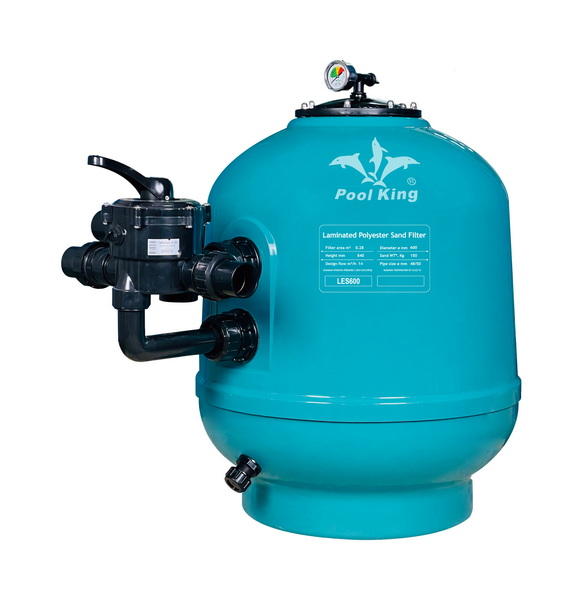Views: 222 Author: Tina Publish Time: 2025-09-13 Origin: Site








Content Menu
● What is Backflushing a Pool Filter?
● Why Backflushing is Important
● When to Backflush Your Pool Filter
>> 3. After Pool Vacuuming or Cleaning
>> 4. Heavy Debris Load or Weather Events
>> 5. Scheduled Maintenance Frequency
● How to Backflush Different Types of Pool Filters
● Backflushing Diatomaceous Earth (DE) Filters
● Best Practices for Filter Backflushing and Maintenance
● What Happens If You Don't Backflush?
● Frequently Asked Questions (FAQ)
>> 1. How often should I backflush my pool filter?
>> 2. Can I backflush my filter too often?
>> 3. What if I don't backflush my pool filter?
>> 4. How long does backflushing take?
>> 5. Can backflushing damage the pool filter?
Maintaining clean and clear swimming pool water is essential for a healthy swimming environment. One of the most important tasks in pool maintenance is backflushing or backwashing the pool filter. Backflushing helps remove trapped debris and contaminants from the filter to ensure it works efficiently. This article explains what backflushing is, why and when it is necessary, how to perform it for different types of filters, and answers common questions about the process.

Backflushing, also known as backwashing, is the process of cleaning a pool's filter by reversing the flow of water. Normally, water passes through the filter media (such as sand, diatomaceous earth, or cartridge) to trap dirt and impurities. Over time, these particles accumulate and reduce the filter's efficiency. Backflushing reverses water flow to flush out the debris, sending it out through the waste line.
Backflushing is crucial for maintaining optimal performance of your pool's filtration system. As dirt builds up:
- The filter clogs, reducing water flow and filtration efficiency.
- Pressure inside the filter increases, risking damage.
- Pool water becomes cloudy or dirty due to poor filtering.
- Energy usage rises as the pump works harder to push water.
Regular backflushing helps restore flow, reduce pressure, and keep pool water clean and safe.
Knowing when to backflush ensures your pool filter is cleaned neither too frequently nor too late. Common indicators include:
Most filters have a pressure gauge showing operating pressure in PSI (pounds per square inch). When the pressure rises 8 to 10 PSI above the clean baseline (e.g., normal 15 PSI rises to 23-25 PSI), it signals the filter is clogged and needs backflushing.
If pool water becomes cloudy or debris is visible and the filter isn't clearing it, backflushing may restore filtration performance.
Vacuuming stirs up debris that the filter collects. Backflushing immediately afterward flushes out the collected dirt trapped in the filter media.
Following storms, heavy rains, or when trees drop leaves and organic matter into the pool, more frequent backflushing is needed to maintain filter functionality.
General guidelines recommend backflushing:
- Sand filters: Approximately once per month or when PSI rises.
- DE filters: Every 4-6 weeks or after heavy use/dirt influx.
- Cartridge filters: Usually cleaned or replaced instead (cartridge filters do not backflush).

1. Turn off the pump.
2. Set the multiport valve to the "Backwash" position.
3. Turn on the pump and run until the discharge water runs clear (usually 2-3 minutes).
4. Turn off the pump.
5. Move the valve to the "Rinse" position, run for 30 seconds to resettle the sand.
6. Turn off the pump again.
7. Set the valve to "Filter" and restart the pump.
8. Check the pool water level and refill if necessary.
1. Turn off the pump.
2. Move the valve to "Backwash" and turn the pump on.
3. Backwash until the water runs clear, typically 3-5 minutes.
4. Turn off the pump.
5. Set to "Rinse" and run the pump for about 30 seconds.
6. Turn off the pump.
7. Set valve to "Filter" and turn pump back on.
8. Add fresh DE powder as per manufacturer instructions to recharge the filter.
Cartridge filters do not backflush. Instead, they require manual cleaning or replacement:
1. Turn off the pump.
2. Remove the cartridge.
3. Hose off debris and soak if needed.
4. Replace if worn or damaged.
5. Reinstall and restart the system.
- Always monitor filter pressure gauges weekly.
- Backflush filters after vacuuming the pool.
- Avoid backflushing too often to prevent premature media wear.
- Follow manufacturer recommendations for backflush frequency.
- Regularly inspect filter components for damage or wear.
- Maintain proper pool water chemistry to reduce debris buildup.
- Keep debris out with pool covers or leaf nets.
Not backflushing leads to:
- Clogged filters reducing water flow and filtration efficiency.
- Increased pump strain and energy consumption.
- Cloudy, unhealthy pool water encouraging algae growth.
- Potential damage or failure of filter components.
- Higher maintenance costs and more frequent media replacement.
Backflushing your pool filter is a vital part of pool maintenance that ensures efficient filtration, clear water, and prolongs equipment life. By understanding when and how to perform backflushing, pool owners can maintain a healthy swimming environment while saving on operating costs. Regularly monitor filter pressure, backflush as needed, and follow manufacturer guidelines for the best results.

Backflush sand filters monthly or when pressure increases 8-10 PSI over normal. DE filters require backflushing every 4-6 weeks or after heavy debris load. Cartridge filters require cleaning, not backflushing.
Yes, excessive backflushing can wear out filter media prematurely and waste water. Follow manufacturer guidelines and backflush only when necessary.
The filter will clog, water flow will reduce, pressure will rise, and pool water will become cloudy and unsafe.
Typically 2-5 minutes until running clear water for sand and DE filters, plus a rinse cycle of about 30 seconds.
If done properly and not excessively, backflushing will not harm the filter. Improper valve settings or too frequent backflushing can cause damage.
[1](https://www.browningpools.com/blog/why-when-and-how-to-backwash-your-pool)
[2](https://www.aquaheat.cn/mediacenter/info.aspx?itemid=2259&lcid=21)
[3](https://www.eco-outdoor.com/en-nz/outdoor-design/when-to-backwash-your-pool)
[4](https://patents.google.com/patent/CN201810000U/zh)
[5](https://www.bluescience.com/swimming-pools/posts/how-to-backwash-a-de-filter/)
[6](https://www.vevor.com/zh-CN/diy-ideas/how-to-choose-the-best-above-ground-pool-cartridge-filter-system-of-2023-b_10134/)
[7](https://hyclor.com.au/how-to-correctly-backwash-a-pool-filter/)
[8](https://www.vevor.com/zh-CN/diy-ideas/types-of-pool-filters-b_10134/?srsltid=AfmBOoo1SarAZbypLcTq5e9yviEnB3_in4BLKgzK850Vzx2lKYEmIOPk)
[9](https://www.reddit.com/r/pools/comments/ty71dn/how_often_backwash_sand_filter/)
[10](https://thesummerpools.com/zh/blogs/pool-maintenance/how-to-choose-the-best-pool-filter-for-pool?srsltid=AfmBOopHZX3PQcmEBoqbSXYFfAWZIXO5yxF059HF1N_0wrJbCGf50OSQ)
